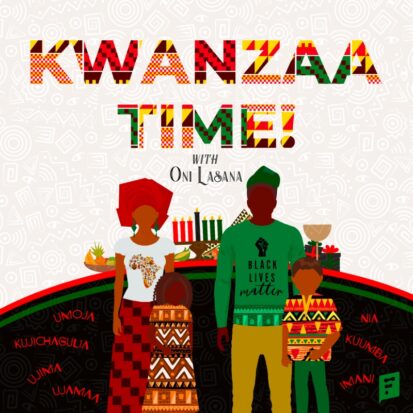
Join us for Kwanzaa Dec. 26th-Jan 1st!
Leave a reviewToday’s African American youth rarely hear stories that amplify tradition and culture that they can relate to within podcasts. As a result, many culturally rich stories enriched with tradition go unexplored. Dr. Maulana Karenga, professor and chairman of Africana Studies at California State University, first created Kwanzaa in 1966. He created this holiday in response to the Watts Riots in Los Angeles in 1965 as a way to bring African-Americans together as a community. Kwanzaa Time! brings these unique perspectives to the forefront while educating the masses about the importance of Kwanzaa in African American culture.
© Newark Collective | 00:01:02
|
Full episode description
 Episode One: Join us for Kwanzaa Dec. 26th-Jan 1st!
Episode One: Join us for Kwanzaa Dec. 26th-Jan 1st!
This is an Episodic show. You can listen to it in any order, but episode one is always a great place to start.Full Episode description
Today’s African American youth rarely hear stories that amplify tradition and culture that they can relate to within podcasts. As a result, many culturally rich stories enriched with tradition go unexplored. Dr. Maulana Karenga, professor and chairman of Africana Studies at California State University, first created Kwanzaa in 1966. He created this holiday in response to the Watts Riots in Los Angeles in 1965 as a way to bring African-Americans together as a community. Kwanzaa Time! brings these unique perspectives to the forefront while educating the masses about the importance of Kwanzaa in African American culture.
In light of COVID-19, Kwanzaa Time! serves as learn-from-home compatible content for parents and educators seeking supplemental educational content. Unsupervised screen time in a crisis may be scary for young children; so having approved audio programs children can access, on-demand, is key.
© Newark Collectivebop| Status: Active, 11 episodes | Kind: Story | Episode URL
The content, Artwork and advertising within this podcast is not owned or affiliated with Sound Carrot and remain the property of their respective owners.








